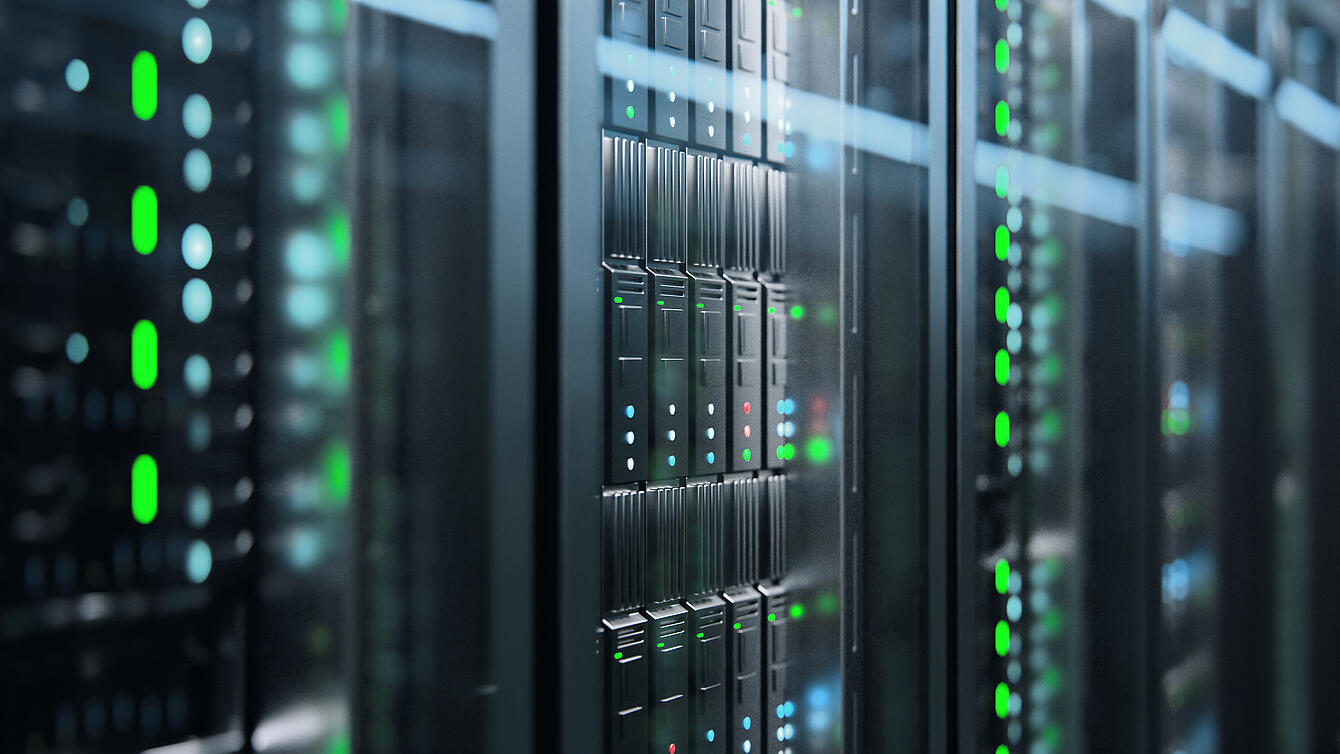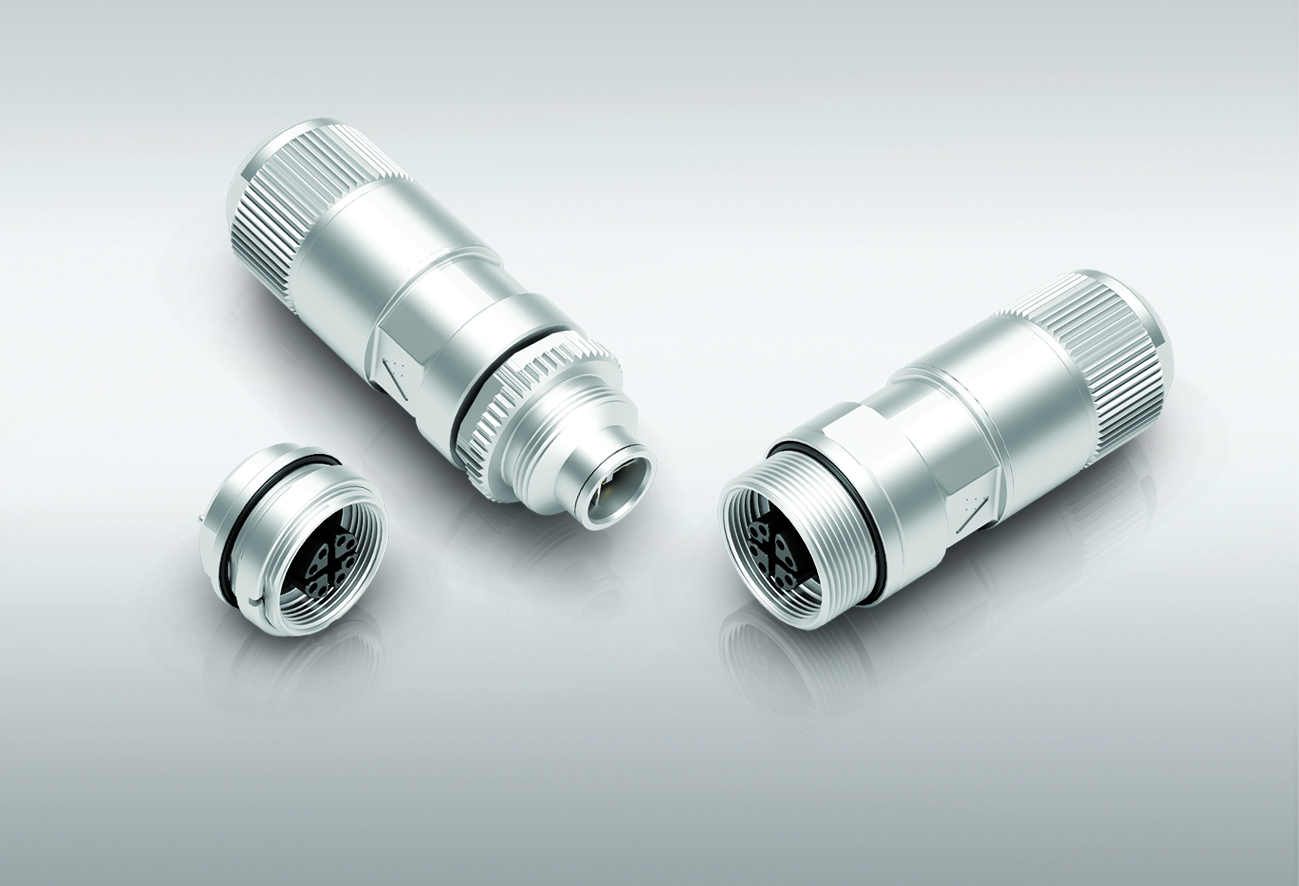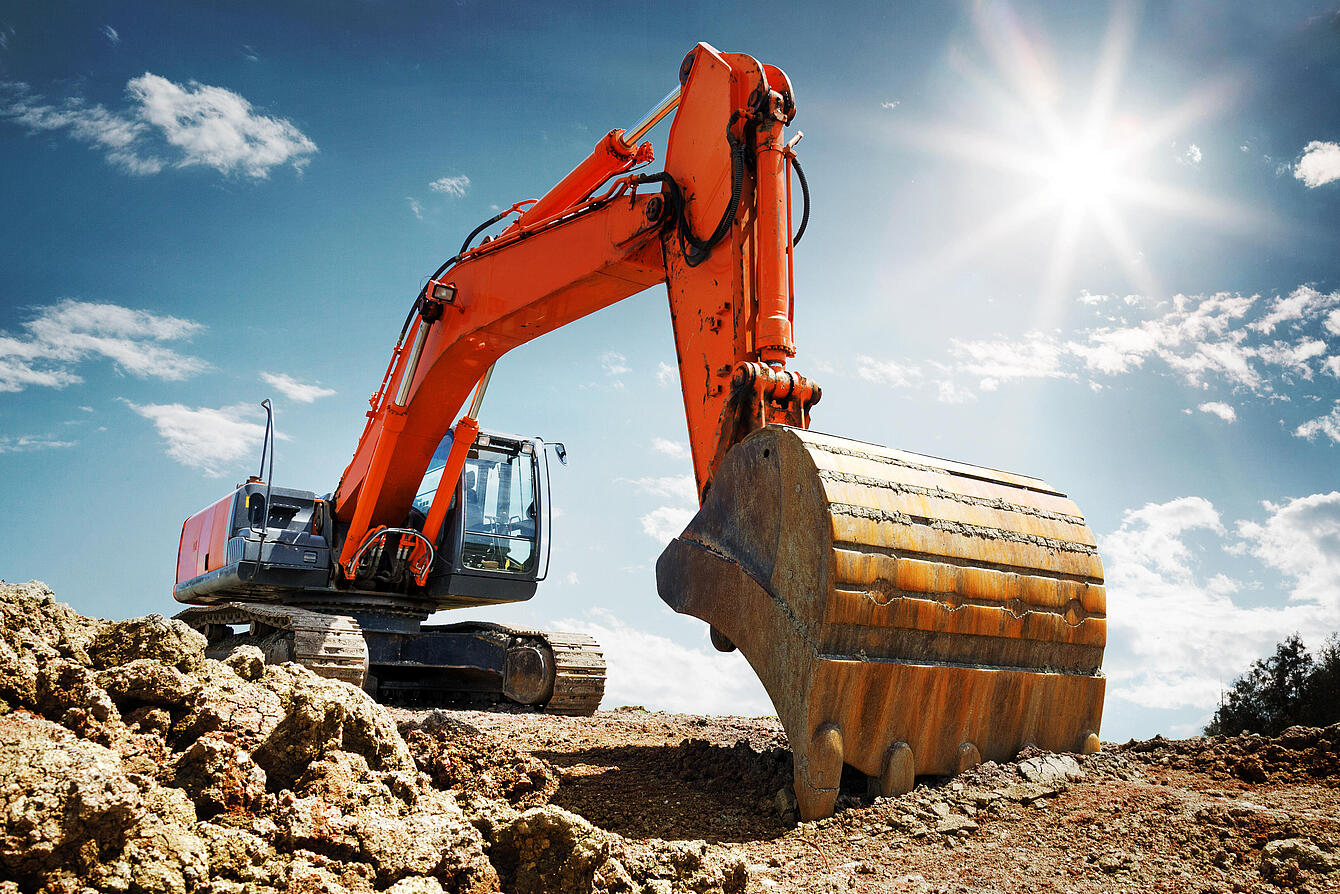Requirements of Industrial Ethernet
- Robust components, such as connectors and network cables, that withstand the harsh conditions of industrial environments – high temperatures, overvoltages and overcurrents, dust, humidity, vibrations
- Ruggedized design of network connectors according to industry-relevant degrees of protection such as IP67, IP68, or IP69K
- Careful grounding as well as EMI shielding of all components in the LAN and effective filters for use in electromagnetically noisy environments
- Capability for real-time protocols such as EtherCAT, Ethernet/IP, or PROFINET

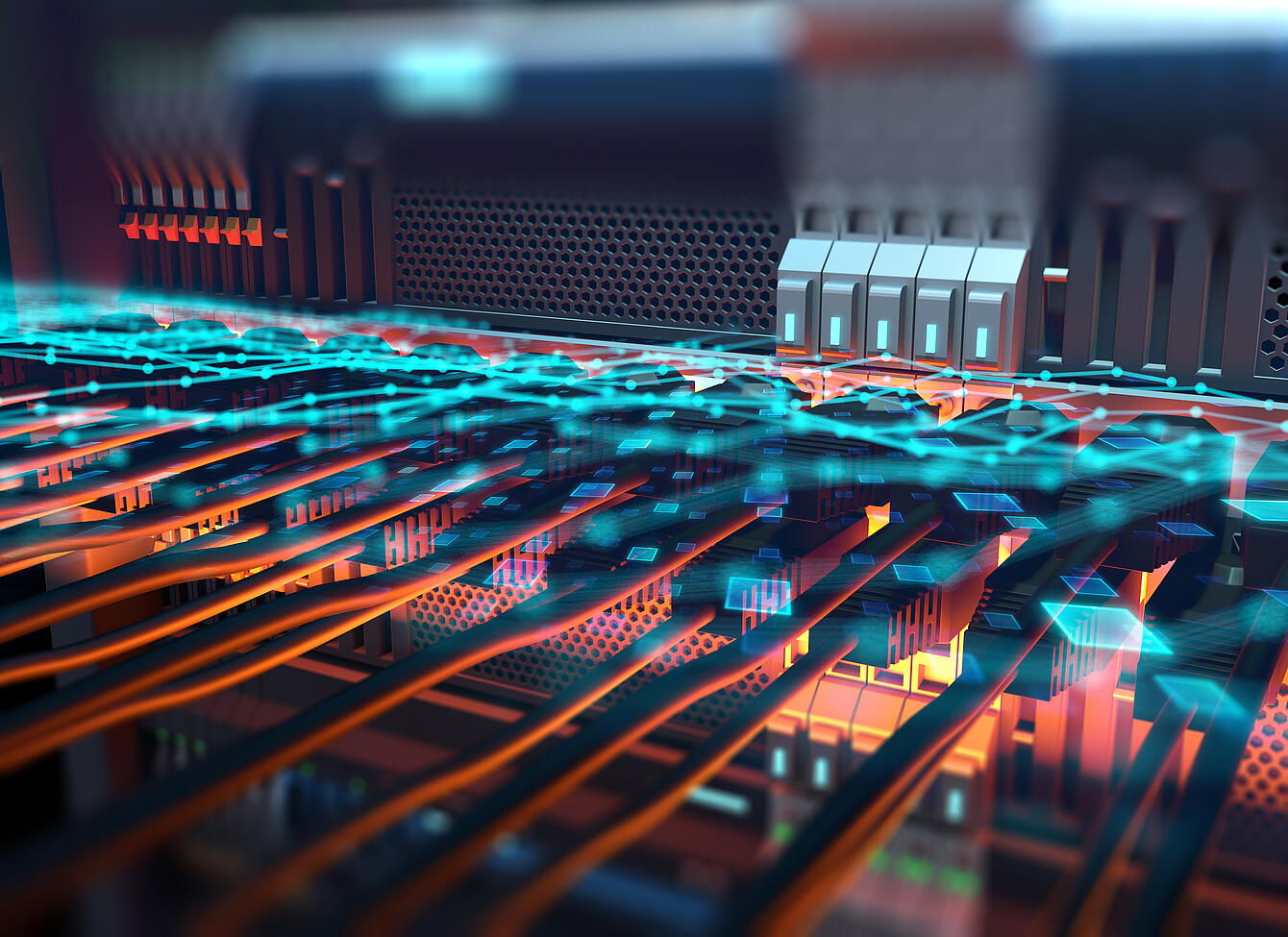
Which Industrial Ethernet Connectors does binder offer?
The binder portfolio includes a comprehensive selection of Ethernet connectors, including the M8, M12, and M16 product lines. The versatile M12 circular connector is not only used for sensor cabling; it has become the industry standard for signal, data and power transmission throughout the factory automation and robotics environment. As Industry 4.0 and the Industrial IoT continue to spread, the Industrial Ethernet product line will play an increasingly important role.
To best meet customer requirements, binder offers several options for network connectors: field-wireables, cordsets, panel mounts, and a large variety of Industrial Ethernet cables.
Below is a summary of the Industrial Ethernet connectors and their features:
M12 Industrial Ethernet connector
M12 connectors have become basic components of industrial automation technology and are designed for economical connection solutions under the requirements of Industry 4.0. The M12 portfolio is extremely diverse; however, only M12-A, M12-D, and M12-X connectors are suitable for Industrial Ethernet. Further information on the related binder product series:
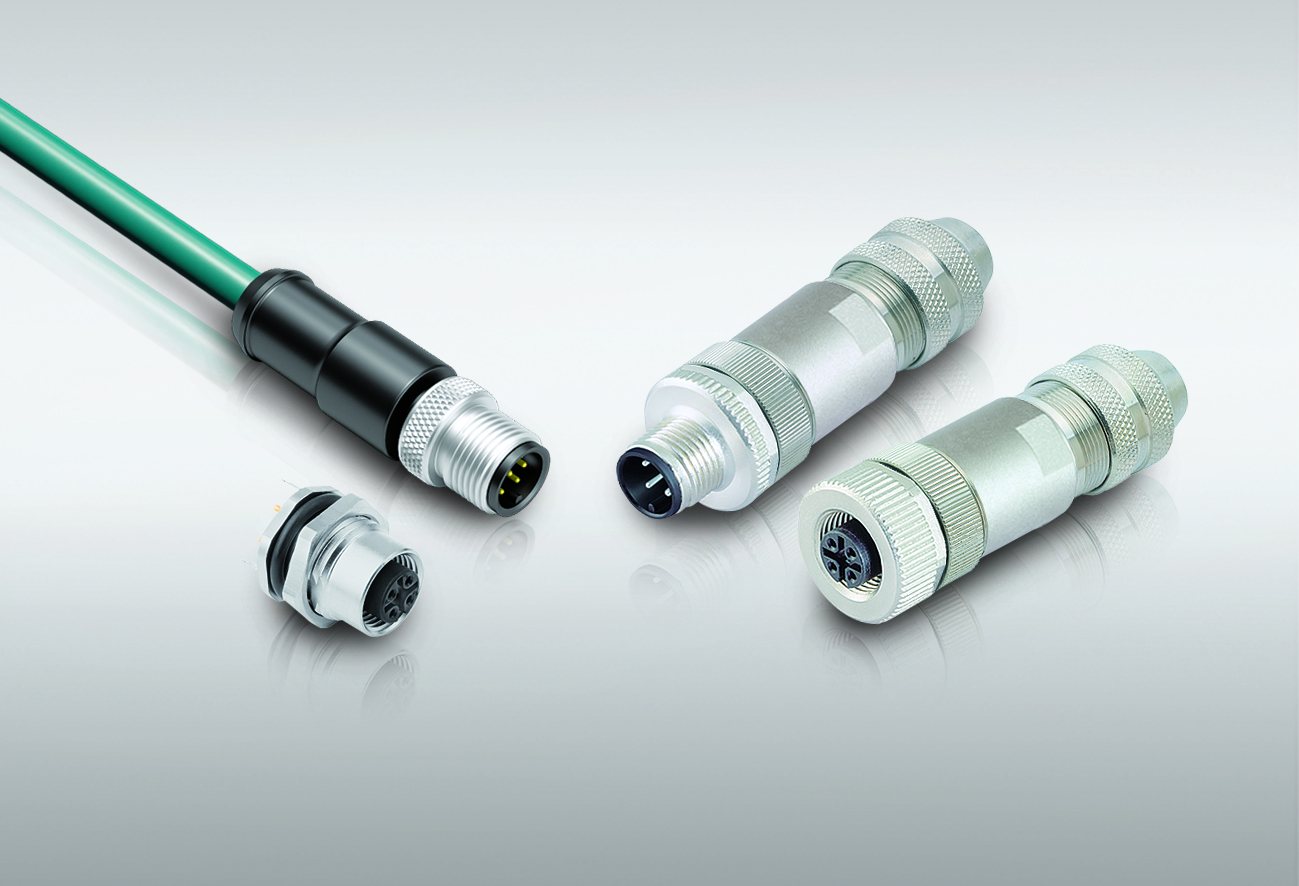
M12-A, 713/763 series
- Screw termination and screw locking in accordance with DIN EN 61076-2-101
- Protection degree IP67/IP68 (when mated)
- Overmolded cordset
- 100 Mbit/s combined with Cat-5 cables
- Ethernet/IP applications
- Industrial-grade Cat-5e cable
- Various cable length options starting at 0.3 m
- Easy assembly
- Very good EMC properties
- Versions with static ring/iris type spring for shielding
- Angled connector
- Pin count: 8
M12 D, 825/876 Series
- Screw, wire clamp and crimp termination; screw locking in accordance with DIN EN 61076-2-101
- Protection degree IP67 (mated)
- Overmolded cordset
- Base-T of 100 Mbit/s
- Ethernet/IP, PROFINET, and EtherCAT applications
- Industrial-grade Cat-5e cable
- Various cable length options starting at 0.3 m
- Easy assembly
- Very good EMC properties
- Versions with static ring/iris type spring for shielding
- Angled connector, can be adjusted to 4 positions
- Pin count: 4
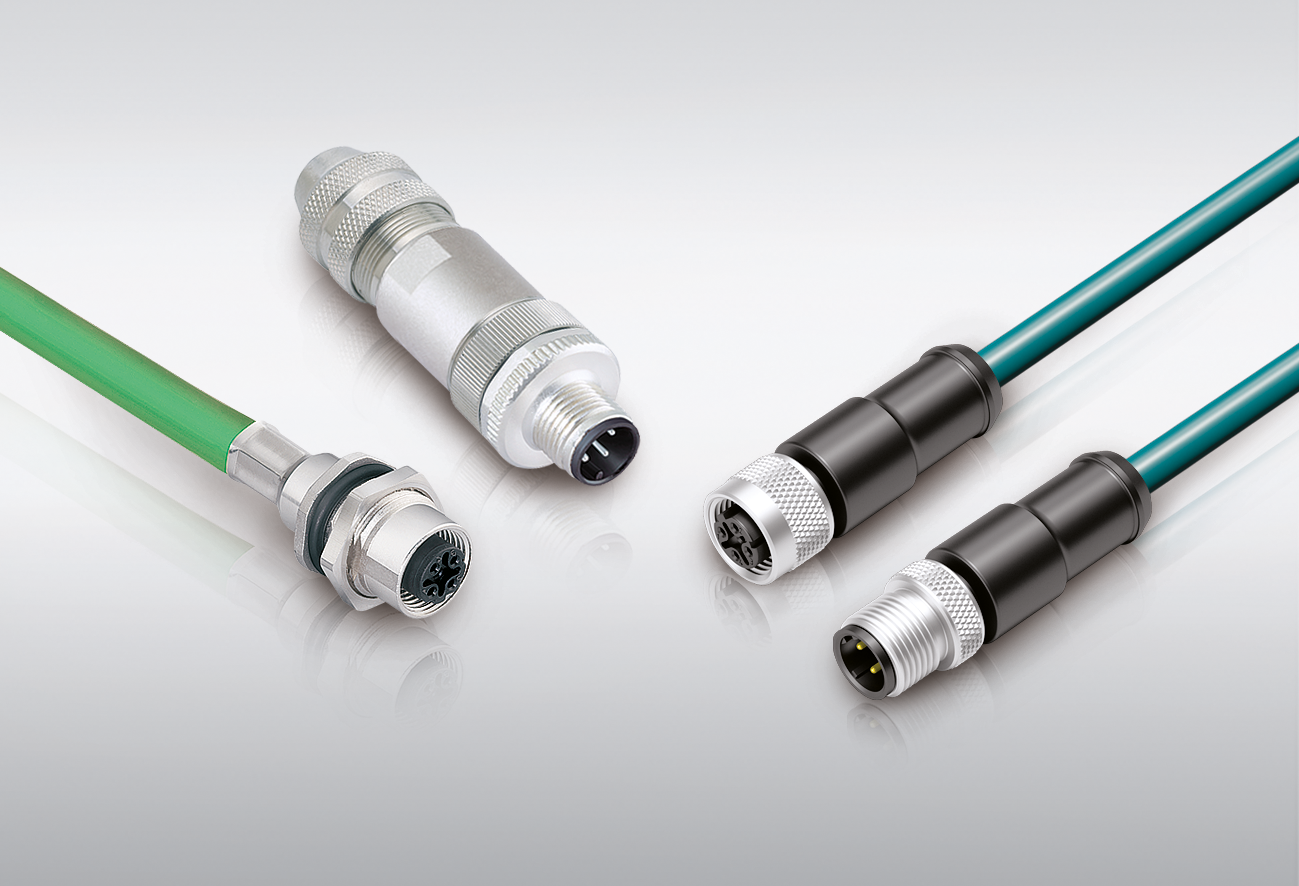
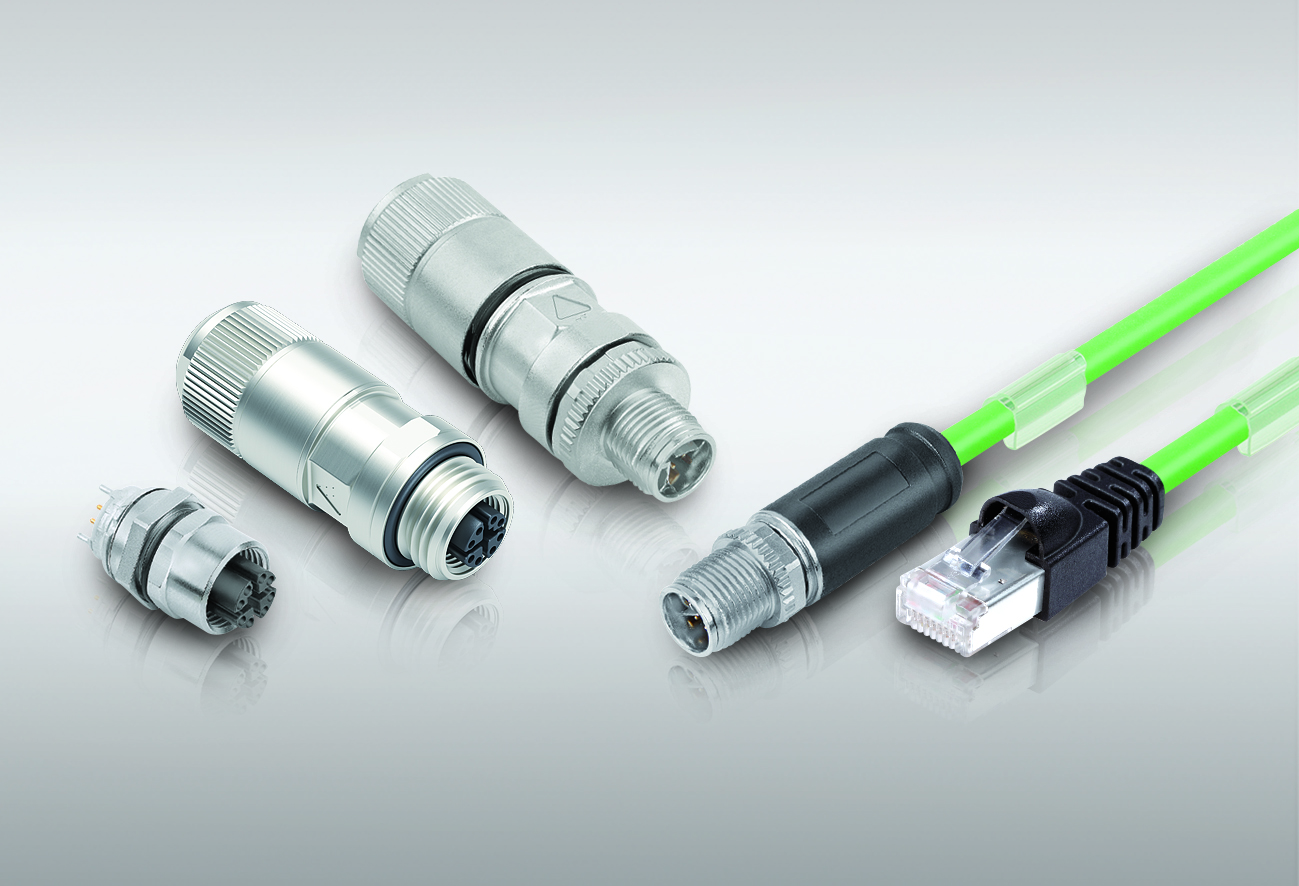
M12 X, 825/876 Series
- IDT termination and screw locking in accordance with DIN EN 61076-2-109
- Protection degree IP67 (mated)
- Overmolded cordset: many options including RJ45-M12X connecting cable
- Base-T of 10.000 Mbit/s
- Ethernet/IP, PROFINET, and PoE applications
- Various cable length options starting at 0.3 m
- Industrial-grade Cat-6A cable
- Very good EMC properties
- Pin count: 8
M8 Industrial Ethernet connectors
The industrial network connectors of the smaller M8 size require up to 30 % less space than M12 connectors – and are therefore suitable for particularly space-critical installations. They enable secure data transmission with communication protocols such as EtherCAT, EtherNet/IP, or PROFINET. With Category-5 cables, the M8 circular connectors achieve data rates of up to 100 Mbit/s.
Binder's D-coded M8 hybrid connectors are recommended for future-proof Industrial Ethernet installations. In addition to data communication, they provide power supply in accordance with the IEEE 802.3at standard (Power-over-Ethernet Plus, PoE+) for the connected devices with up to 30 watts.
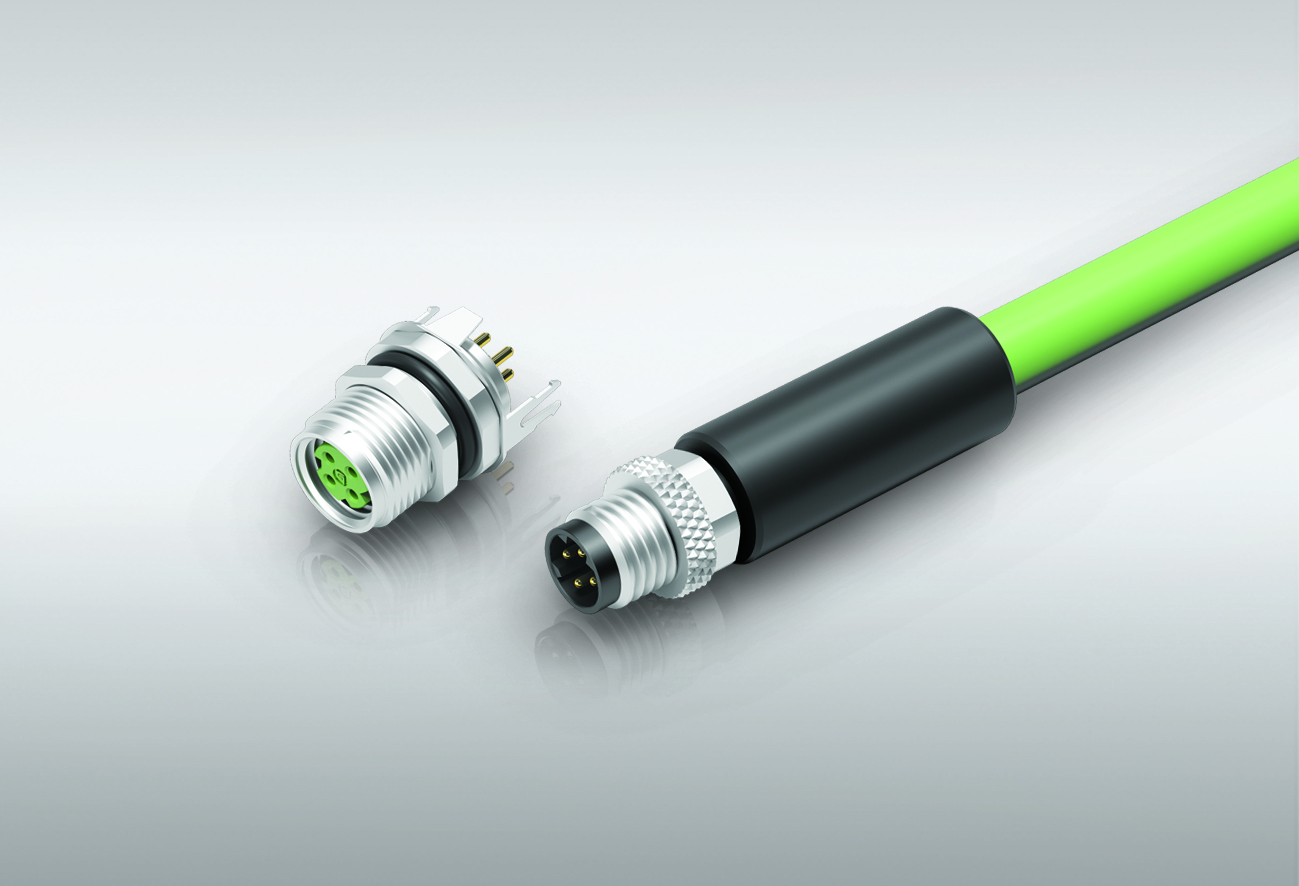
M8 D, 818 Series
- Screw locking according to DIN EN 61076-2-114
- Field-attachable, overmolded cordset and panel mount parts
- Ethernet/IP and PROFINET applications
- Industrial-grade Cat-5e cable
- Protection degree IP67 (mated)
- Data transmission up to 100 Mbit/s
- 30 % less installation space than M12
- Data transmission and power supply (PoE+)
- Versions with iris type spring for shielding
- Pin count: 4, symmetrically arranged
M16 Industrial Ethernet connectors
X-coded M16 connectors extend binder's robust Industrial Ethernet portfolio to high data rates. Designed for harsh industrial environments and protected up to IP67 when mated, they support data rates up to 10 Gbit/s in Ethernet/IP, PROFINET, and PoE applications. The M16-X product line is equipped with IDT termination and – with regard to the application conditions in factory and process automation – with secure screw locking according to DIN EN 61076-2-106.
RJ45 Industrial Ethernet connectors
RJ45 connectors are a well-established component to transmit data across a variety of devices. RJ45 connectors, commonly used with RJ45 ethernet cables, are crucial for establishing reliable connections within Local Area Networks (LANs). The versatility and compatibility of RJ45 connectors, ethernet cables, including Cat6 and Cat6a ethernet cables, is ideal to ensure efficient data transmission and connectivity.
RJ45, Series 876
- Double-ended RJ45 connectors are designed for reliable Ethernet IP and PROFINET data transmission
- RJ45 connectors come in different cable lengths
- Available in different industrial ethernet cables such as Ethernet Cat7, CAT6a or Ethernet Cat5e
- RJ45 cable connectors are shielded
- Degree of protection class IP20
- Available with 4 to 8 contacts
- Double-ended ethernet cordsets are available in different versions such as M8 D-coded to RJ45, M12 to RJ45, M12 D-coded to RJ45 and M12 X-coded to RJ45
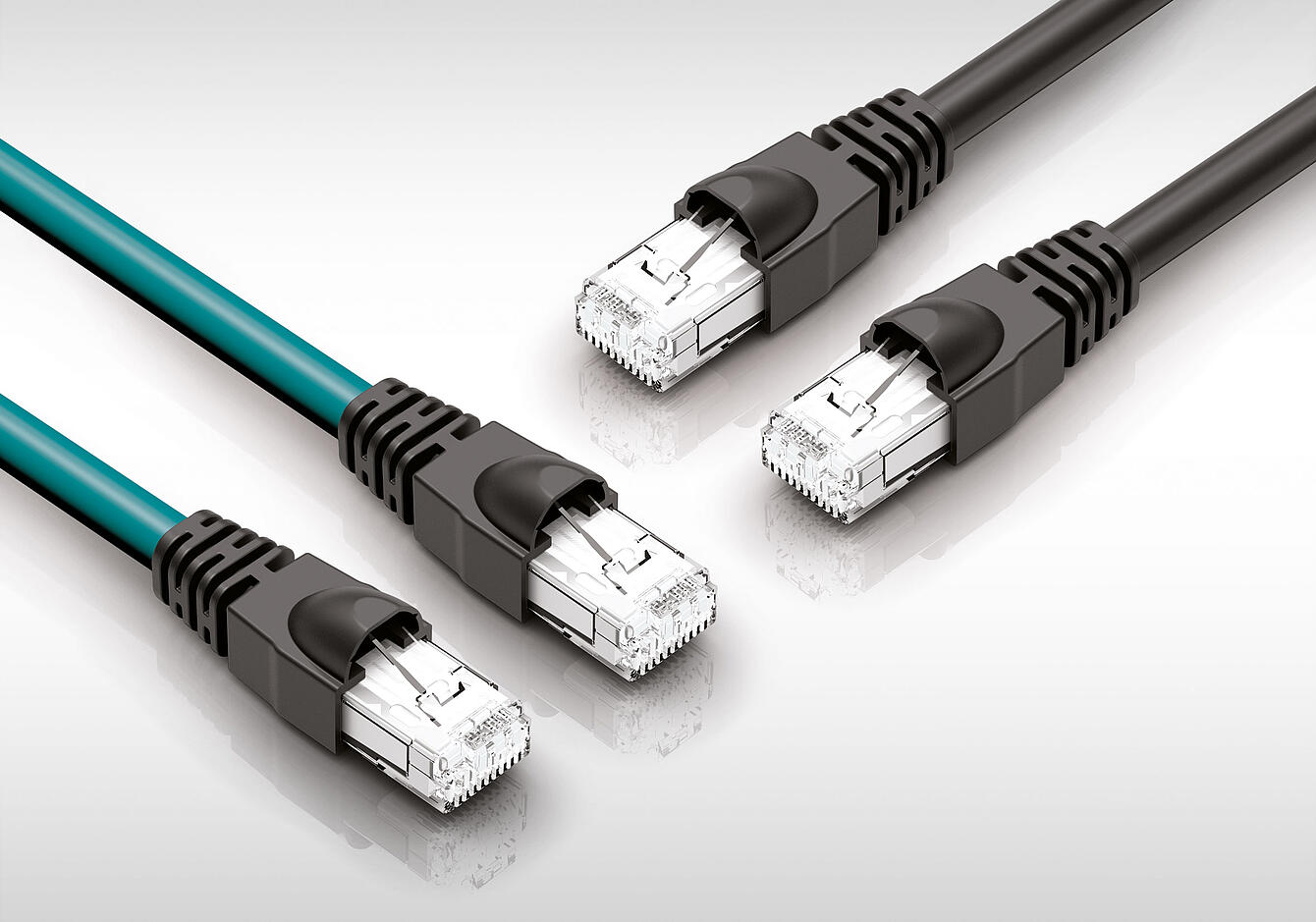
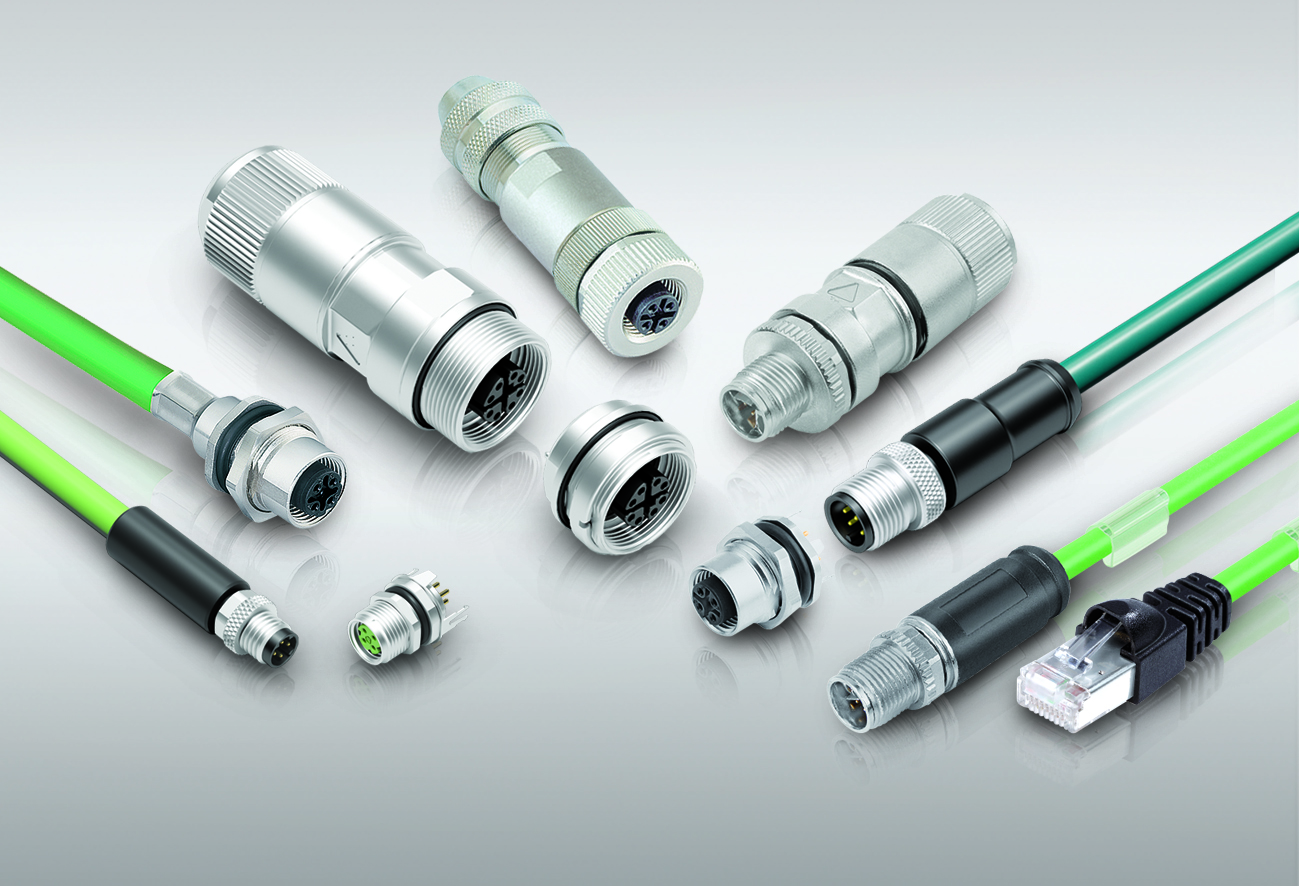
Advantages of binder’s Industrial Ethernet connectors
- As a leading specialist in circular connectors, binder has extensive expertise in technology, applications and markets
- Decades of experience in the development, design, and (automated) production of circular connectors
- Products for fast and reliable data transmission
- Overmolded cable connectors 100 % tested to ensure quality and reliability
- Customized cordset solutions with RJ45
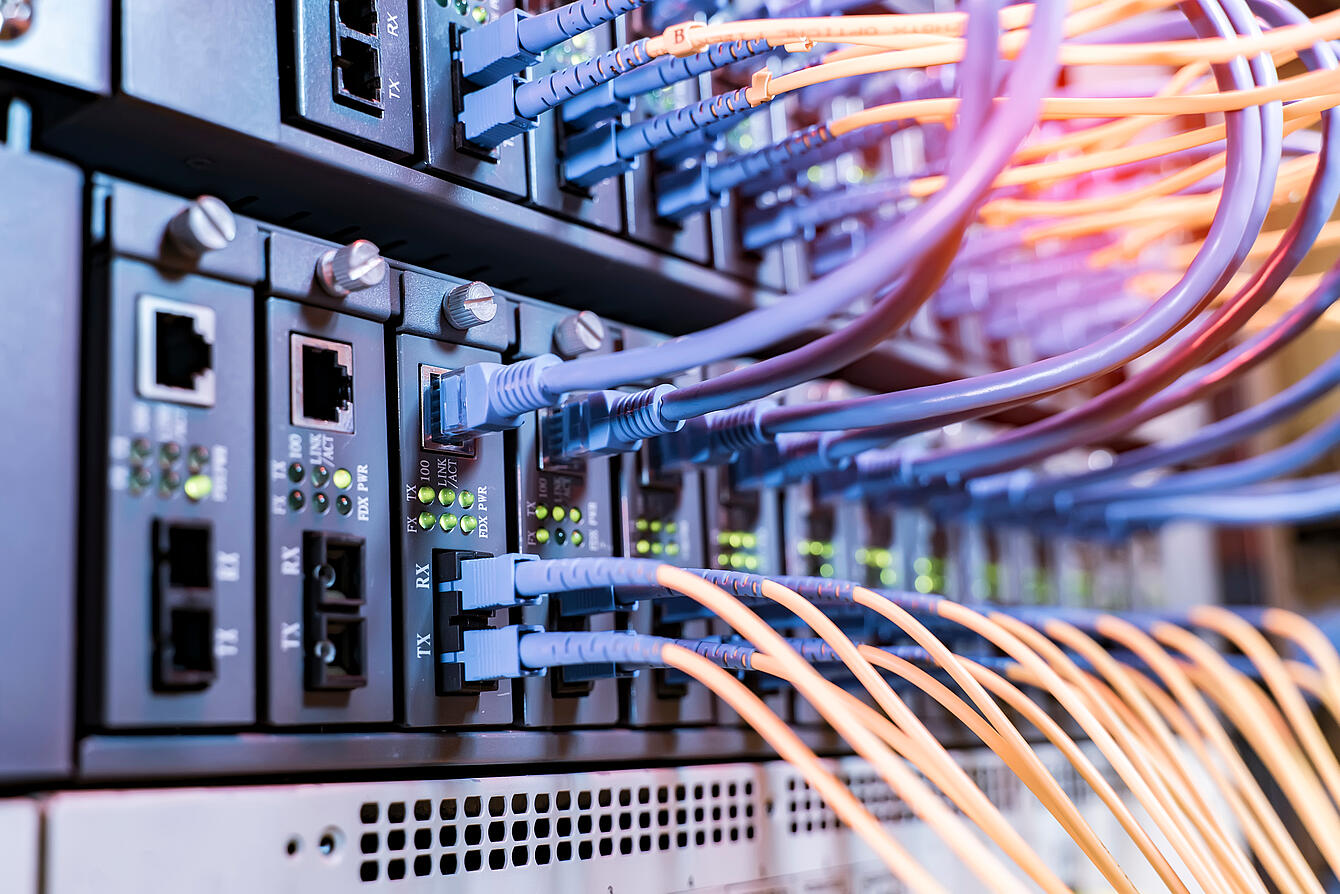
What distinguishes Industrial Ethernet from commercial Ethernet?
Commercial (standard) Ethernet was developed for high-speed data transmission. It has become widely accepted because it is simple, efficient and flexible. Its success and widespread use in non-industrial applications, such as office environments, is due not least to its comparatively low implementation costs.
However, standard Ethernet is not deterministic – it does not allow real-time data communication, as many automation applications require. Industrial Ethernet addresses this problem.
The main differences are
- Environment: factory and process automation applications require rugged connectors and cables that can withstand harsh conditions. Industrial Ethernet connectors and cables, depending on their protection degree, are designed to withstand extreme temperatures, dust, electromagnetic interference, humidity, liquids and vibration
- Cabling: the wiring must be protected by means of shielding and jacketing
- Connectors: robust locking and careful shielding, grounding, and filtering are required, as well as IP67 protection
- Bandwidth: 100 Mbit/s is the usual data rate in Industrial Ethernet - only a fraction of the gigabit speed commonly used in LANs. The reason for this is simple: transmitting process and control data to an industrial network requires much less bandwidth than streaming music or video
- High stability and reliability: industrial systems must be stable and reliable, as network failures can lead to a production stop
- Deterministic real-time communication: data transmission is often completed within a few milliseconds. In addition, the network in an industrial setup must guarantee that certain events occur within a specific time
